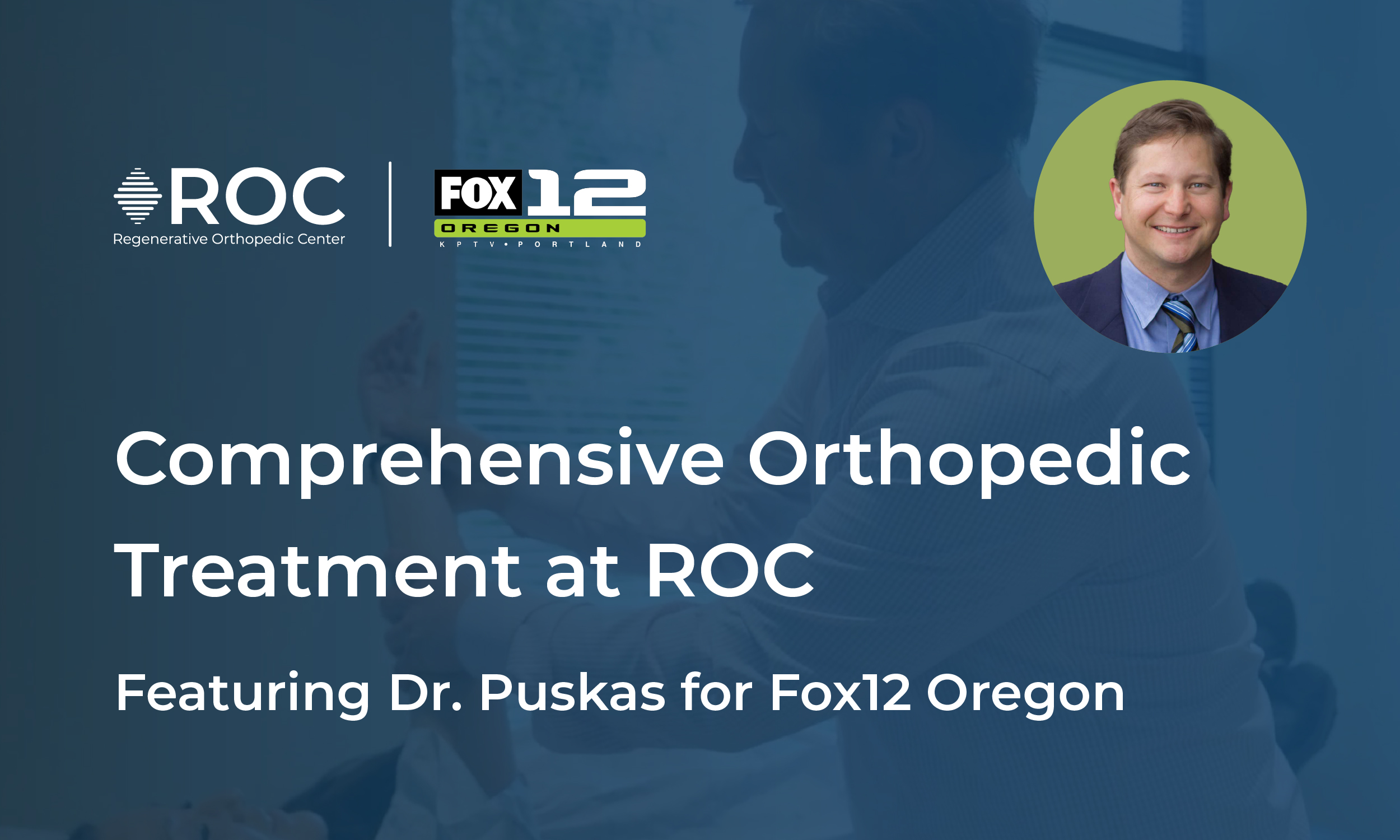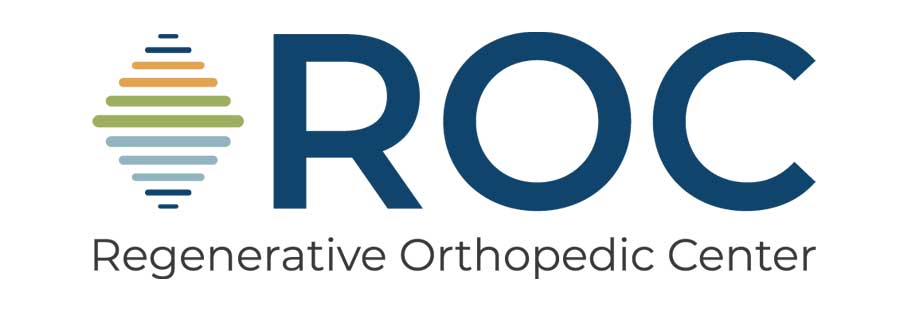Fox 12 Good Day Living’s Stephanie Kralevich recently visited ROC’s Tualatin location to catch up with Brian Puskas, M.D.
Dr. Puskas discusses his work in orthopedic sports medicine care, including the work it took to complete his dual fellowship, new technology in shoulder orthopedics, and his patient population.
Stephanie Kralevich: ROC stands for Regenerative Orthopedic Center. Today, we are meeting one of the surgeons.
We are here with Dr. Brian Puskas, a board-certified orthopedic surgeon here at ROC. Dr. Puskas, what is your specialty here?
Dr. Brian Puskas: My specialty is sports medicine with an emphasis on upper extremity.
Kralevich: And you completed an advanced dual fellowship. What does that mean?
Puskas: After completing medical school, and five years of orthopedic surgery residency program, I did two additional years. One of a sports medicine, and then I did an additional fellowship, another year of doing upper extremity surgery focusing on the shoulder and elbow.
Kralevich: Tell me about your patient population.
Puskas: I see patients almost of all ages. I see athletes in middle school and high school. We take care of some D1 athletes for some of their more complex shoulder problems, as well as my older athletes that need shoulder and elbow replacements.
Kralevich: So you’re helping people continue their active lifestyles?
Puskas: That’s our goal. The real focus of my practice and in orthopedics in general is quality of life and whether we can help people not operatively or with surgery.
Kralevich: What kind of injuries are you treating?
Puskas: Well, it depends on what they’re doing. A lot of times, if somebody is a basketball player or baseball player, they can have instability type problems. If they’re a soccer player or runner, they can have an ACL tear. Or if there’s somebody that has arthritis, they may need an injection or even something like a shoulder replacement.
Kralevich: What’s the latest in shoulder surgeries?
Puskas: Well, that’s a big topic. But in terms of rotator cuffs, there are a lot of orthobiologics to help with shoulder pain. There are also things like augmented reality CT planning to get the best shoulder replacement we can, to help people with their pain.
Kralevich: And you’re an orthopedic surgeon, but you’re not always doing surgery on patients.
Puskas: No. In fact, most of the time when I’m in the office, I’m either counseling patients on the risks and benefits of nonoperative treatment, which is the majority of my practice, versus surgery. And if something needs surgery, then we’ll do that and help people with the post op rehab.
Kralevich: To learn more about orthopedic care and recovery at Regenerative Orthopedic Center, visit rocpdx.com.

